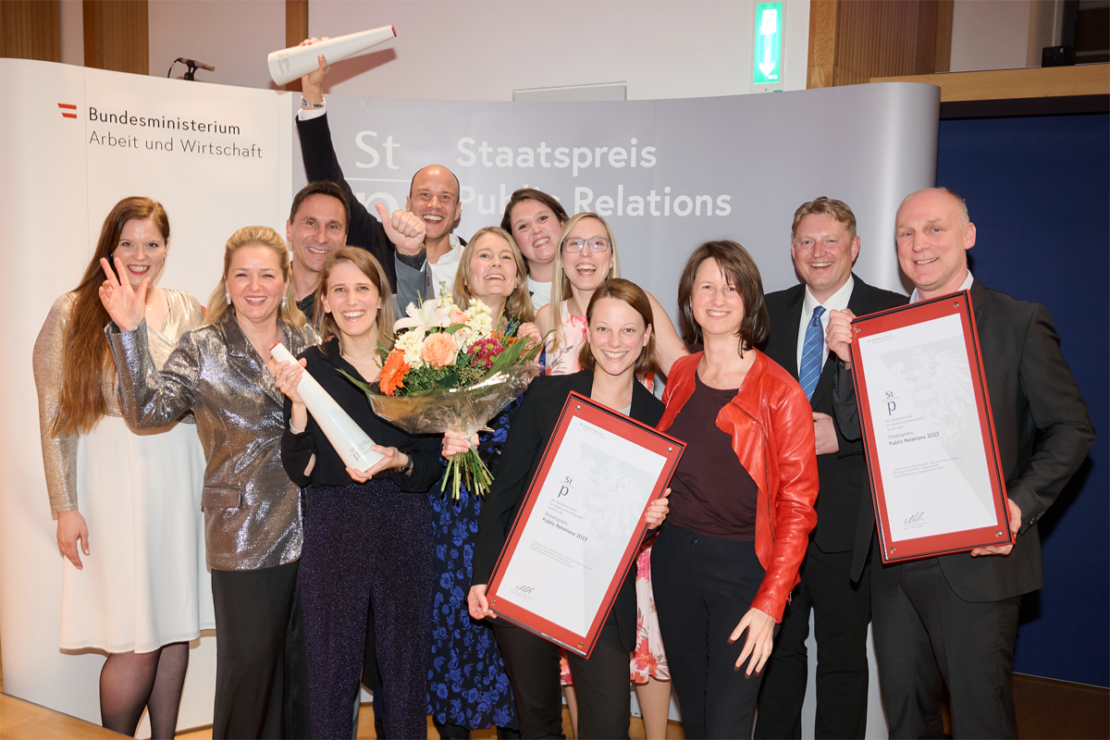Grayling Trendbericht 2025: Fünf Empfehlungen für die Unternehmensreputation
| By Berith Hagvaag | 0 Comments

Unter dem Titel „Creating Advantage in an Uncertain World“ stellt die globale PR- und Kommunikationsagentur Grayling ihren jährlichen Trendbericht für 2025 vor. Die Analyse basiert auf einer Umfrage unter 500 britischen Führungskräften, darunter CEOs und Vorstandsmitglieder. Das Ergebnis gibt Einblicke in die Stimmung und die Prioritäten der Entscheidungsträger*innen in Bezug auf geopolitische, wirtschaftliche und technologische Unsicherheiten.
Chancen in unsicheren Zeiten erkennen
Der politische Rechtsruck in vielen Teilen der westlichen Welt, anhaltende bewaffnete Konflikte sowie die Unsicherheiten rund um das Thema Künstliche Intelligenz (KI) stellen Unternehmen und Organisationen auch in Bezug auf Markenreputation und Resilienz vor große Herausforderungen. Um diesen erfolgreich zu begegnen, hat Grayling fünf zentrale Empfehlungen formuliert:
1. Politische und wirtschaftliche Instabilität erfordern Proaktivität
Mehr als die Hälfte der befragten Führungskräfte (56 Prozent) sind nur „einigermaßen zuversichtlich“, dass ihr Unternehmen sich an ändernde Gesetzgebungen und politische Rahmenbedingungen anpassen kann. Während sie mit finanziellen Engpässen und stagnierendem Wachstum zu kämpfen haben, müssen sie gleichzeitig mit neuen rechtlichen Rahmenbedingungen umgehen. Um widerstandsfähig zu bleiben, müssen Unternehmen proaktiv mit politischen Entscheidungsträger*innen zusammenarbeiten, neue Gesetzesvorhaben im Auge behalten und ihre Strategien laufend anpassen.
2. Klare Strategien für den Umgang mit KI entwickeln
Zwei Drittel (65 Prozent) der befragten Führungskräfte äußerten sich besorgt über die potenziellen Risiken von KI für ihr Unternehmen, einschließlich der Auswirkungen auf die Reputation. KI verändert ganze Branchen und bietet gleichzeitig Möglichkeiten für mehr Personalisierung und mehr Effizienz. Ethische Aspekte, Datensicherheit und Transparenz bleiben von entscheidender Bedeutung, um intern und extern Vertrauen zu schaffen.
3. Über digitale Plattformen neue Zielgruppen erschließen
Knapp die Hälfte (49 Prozent) der Befragten nennt Online-Medien als wichtigste Kommunikationskanäle im Jahr 2025. Printmedien (6 Prozent) sowie TV und Radio (5 Prozent) werden als bei weitem weniger einflussreich eingestuft. Die Social-Media-Landschaft entwickelt sich rasant weiter und neue Plattformen gewinnen an Bedeutung. Um relevant zu bleiben, müssen Unternehmen und Marken ihr Publikum differenziert verstehen und ihre Auftritte entsprechend anpassen.
4. Nachhaltiges Wirtschaften ist nach wie vor unerlässlich
Für 37 Prozent der befragten Führungskräfte ist eine transparente Darstellung von Kosten und Nutzen der effektivste Weg, um breite Unterstützung für Nachhaltigkeitsreformen wie den Umstieg auf erneuerbare Energien zu gewinnen. Da die endgültige EU-Frist für die Einreichung neuer nationaler Klimaschutzpläne näher rückt und Rückschläge für den Klimaschutz durch die zweite Amtszeit von Donald Trump absehbar sind, müssen sich Entscheidungsträger*innen gleichzeitig auf umfangreichere Vorgaben und veränderte Regulierungen einstellen.
5. Resilienz durch Kommunikation stärken
Als größte Herausforderung für 2025 sehen die befragten Führungskräfte eine geschwächte Unternehmensreputation (19 Prozent). Effektive externe und interne Kommunikationsstrategien sind unerlässlich, um Krisen zu bewältigen, Erwartungen zu managen und das Vertrauen in die Marke aufrechtzuerhalten.
„Die in Großbritannien durchgeführte Umfrage ist auch ein Stimmungsbarometer für die DACH-Region, wenngleich die Einschätzung der Rolle der Online-Medien hier sicherlich anders ausfällt. Klar ist: 2025 wird ein weiteres bewegtes Jahr für Unternehmen und Marken. Die Herausforderungen reichen von einem sich verändernden regulatorischen Umfeld über die rasante Integration von KI bis hin zu geopolitischen Unsicherheiten. Risikomanagement ist zu einer entscheidenden Priorität geworden und Unternehmen tun gut daran, potenzielle Störungen und Chancen nicht nur zu antizipieren, sondern auch agil und widerstandsfähig darauf zu reagieren“, so Sigrid Krupica, CEO Grayling Austria. „Das bedarf einer Kommunikation nach innen und außen, die flexibel auf äußere Umstände reagiert und gleichzeitig durch Haltung Stabilität gibt.“
>>Hier können Sie kostenlos den aktuellen Grayling Trendbericht 2025 (in englischer Sprache) herunterladen.
Bild:
Der Global Grayling Trend Report 2025 gibt Empfehlungen für die Reputation von Unternehmen – ©Grayling
Für Rückfragen:
Berith Hagvaag, Communications Director, Grayling Austria, berith.hagvaag@grayling.com












